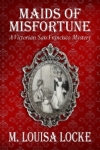This article was written by Alison Flood was in the May 30 2011 edition of:

18°C
8°C
"The Unbound.co.uk publishing platform, dreamed up by QI's John Mitchinson and Justin Pollard, and Crap Towns author Dan Kieran, allows writers to pitch ideas online directly to readers who, if they are interested, pledge financial support. Once enough money has been raised, the author will write the book, with supporters receiving anything from an ebook to a limited first edition and lunch with the author, depending on their level of investment.
The founders, who launched the crowdfunding literary website at the Hay festival, say that it "democratises the book commissioning process by enabling authors and readers to make the decisions about what does or doesn't get published". Jones, who said the initiative was "brilliant … just what publishing needs", is contributing one of the first titles on the site, a Roald Dahl-esque story of vengeful phones and hoovers called Evil Machines. This Life writer and chick-lit novelist Amy Jenkins is pitching "a more reflective book about relationships", The Art of Losing, and a collection of short stories from Fischer, entitled Crushed Mexican Spiders, is also among the site's first titles.
Pretor-Pinney is pitching an iPad app that would take users inside clouds, while The Horse Boy author Rupert Isaacson and cultural historian and film-maker Jonathan Meades will also be proposing books to potential readers.
Pitching a project on Unbound is free for authors, with the founders planning to make money through a 50/50 profit share on successful titles. If a book fails to raise enough money to be published, then supporters will either be able to use their investment for another title, or have the cash returned to them.
"We can make a book viable by selling 2,500 to 3,000 copies. Books like that are not hugely appealing to big publishing houses, but there are targeted audiences who could be very well served by them. There could be 10,000 people who like Norwegian steam-train systems from the 1930s – if we can put them together with an author, then it's worth everybody's while to do it," said Pollard.
Authors will have a private area or "shed" on the site, where they will be able to blog, post interviews, and meet their supporters. Readers can choose the amount of money they wish to pledge, from £10, which buys an ebook edition, access to the author's "shed" and the supporter's name in the back of the book, to £250, which brings lunch with the author, signed and personally dedicated first editions, goodie bags and ebooks, to funding the whole book.
"It's a way of stirring things up in publishing – removing the gatekeepers in the middle and saying 'you're the readers, you're the authors – come up with what you want them to do'" said Pollard. "In many ways it's a very old idea – there are a lot of 19th century cases where books were published by subscription. Because of the internet we have crowdfunding, so we can combine the old idea of subscription with finding your audience on the internet, and get the best of both worlds."
Other authors supporting the project – but yet to sign up with books - include Bernard Cornwell, who called it "a bloody brilliant idea", Philip Pullman, who said it was "an idea whose time has come", and Noam Chomsky, who said its "significance could be quite substantial".
The Unbound.co.uk publishing platform, dreamed up by QI's John Mitchinson and Justin Pollard, and Crap Towns author Dan Kieran, allows writers to pitch ideas online directly to readers who, if they are interested, pledge financial support. Once enough money has been raised, the author will write the book, with supporters receiving anything from an ebook to a limited first edition and lunch with the author, depending on their level of investment.
The founders, who launched the crowdfunding literary website at the Hay festival, say that it "democratises the book commissioning process by enabling authors and readers to make the decisions about what does or doesn't get published". Jones, who said the initiative was "brilliant … just what publishing needs", is contributing one of the first titles on the site, a Roald Dahl-esque story of vengeful phones and hoovers called Evil Machines. This Life writer and chick-lit novelist Amy Jenkins is pitching "a more reflective book about relationships", The Art of Losing, and a collection of short stories from Fischer, entitled Crushed Mexican Spiders, is also among the site's first titles.
Pretor-Pinney is pitching an iPad app that would take users inside clouds, while The Horse Boy author Rupert Isaacson and cultural historian and film-maker Jonathan Meades will also be proposing books to potential readers.
Pitching a project on Unbound is free for authors, with the founders planning to make money through a 50/50 profit share on successful titles. If a book fails to raise enough money to be published, then supporters will either be able to use their investment for another title, or have the cash returned to them.
"We can make a book viable by selling 2,500 to 3,000 copies. Books like that are not hugely appealing to big publishing houses, but there are targeted audiences who could be very well served by them. There could be 10,000 people who like Norwegian steam-train systems from the 1930s – if we can put them together with an author, then it's worth everybody's while to do it," said Pollard.
Authors will have a private area or "shed" on the site, where they will be able to blog, post interviews, and meet their supporters. Readers can choose the amount of money they wish to pledge, from £10, which buys an ebook edition, access to the author's "shed" and the supporter's name in the back of the book, to £250, which brings lunch with the author, signed and personally dedicated first editions, goodie bags and ebooks, to funding the whole book.
"It's a way of stirring things up in publishing – removing the gatekeepers in the middle and saying 'you're the readers, you're the authors – come up with what you want them to do'" said Pollard. "In many ways it's a very old idea – there are a lot of 19th century cases where books were published by subscription. Because of the internet we have crowdfunding, so we can combine the old idea of subscription with finding your audience on the internet, and get the best of both worlds."
Other authors supporting the project – but yet to sign up with books - include Bernard Cornwell, who called it "a bloody brilliant idea", Philip Pullman, who said it was "an idea whose time has come", and Noam Chomsky, who said its "significance could be quite substantial".
Jenkins, author of the novels Honeymoon and Funny Valentine, has not published a book for 10 years. She found the idea of working with Unbound for her new title, a "novelised memoir about unfortunate relationships and loss", "more exciting than getting a publishing deal", she said. "Two things make it appealing – first, the idea of a 'shed' where supporters can visit you. Writing is a really lonely occupation and it sounds very nice. The other is that Unbound is set up by writers for writers. What I really hated about my conventional publishing was all the publicity I had to do. So I liked the idea that as the writer, you are in charge."
Initially the authors on the site will be selected by its founders, who are also talking to agents about potential projects from their clients. "This is practical, initially, as if we were to open it to everyone there would be so much noise it would be difficult to navigate," said Pollard. But as the site develops, he hopes to open up an area for new writers to pitch ideas, which, if they collected enough pledges, would move onto the main site. Publisher Faber & Faber is supporting the project, and will sell and distribute trade editions of selected titles under the Unbound imprint.
Jenkins, author of the novels Honeymoon and Funny Valentine, has not published a book for 10 years. She found the idea of working with Unbound for her new title, a "novelised memoir about unfortunate relationships and loss", "more exciting than getting a publishing deal", she said. "Two things make it appealing – first, the idea of a 'shed' where supporters can visit you. Writing is a really lonely occupation and it sounds very nice. The other is that Unbound is set up by writers for writers. What I really hated about my conventional publishing was all the publicity I had to do. So I liked the idea that as the writer, you are in charge."
Initially the authors on the site will be selected by its founders, who are also talking to agents about potential projects from their clients. "This is practical, initially, as if we were to open it to everyone there would be so much noise it would be difficult to navigate," said Pollard. But as the site develops, he hopes to open up an area for new writers to pitch ideas, which, if they collected enough pledges, would move onto the main site. Publisher Faber & Faber is supporting the project, and will sell and distribute trade editions of selected titles under the Unbound imprint."









